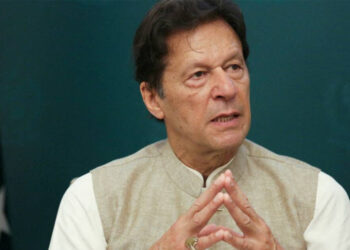WASHINGTON: Leading US paper has published a detailed report showing that how several countries including Pakistan have been trying to stay neutral or not taking sides in the growing confrontation between the United States and its rivals, Russia and China, as well as how Pakistan abandoned its neutrality.
According to a report by Washington Post, these countries are choosing not to get involved in the conflict and instead maintain their independence and neutrality. The implication is that this lack of support or involvement from key nations could make it more difficult for the US to achieve its objectives in this confrontation.
The WP report says the documents, among a trove of U.S. secrets leaked online through the Discord messaging platform, provide a rare glimpse into the private calculations by key emerging powers, including India, Brazil, Pakistan and Egypt, as they attempt to straddle allegiances in an era when America is no longer the world’s unchallenged superpower.
The report quotedMatias Spektor, a scholar at the Carnegie Endowment for International Peace, as saying developing nations are recalibrating at a moment when America faces potent new competition, as China projects new economic and military clout and Russia, though weakened by President Vladimir Putin’s war in Ukraine, demonstrates its ability to deflect Western pressure.
“It’s unclear who will end up in a pole position in 10 years’ time, so they need to diversify their risk and hedge their bets,” Spektor said.
In an internal memo she titled “Pakistan’s Difficult Choices,” Khar, who previously served as Pakistan’s foreign minister, cautioned that Islamabad should avoid giving the appearance of appeasing the West, and said the instinct to preserve Pakistan’s partnership with the United States would ultimately sacrifice the full benefits of what she deemed the country’s “real strategic” partnership with China. The undated intelligence document does not detail how the United States gained access to Khar’s memo.
Another document, dated Feb. 17, describes Pakistani Prime Minister Shehbaz Sharif’s deliberations with a subordinate about an upcoming U.N. vote on the Ukraine conflict, and what the government anticipated would be renewed Western pressure to back a resolution condemning Russia’s invasion.
The aide advised Sharif that support for the measure would signal a shift in Pakistan’s position following its earlier abstention on a similar resolution, the intelligence document says. Pakistan had the ability to negotiate trade and energy deals with Russia, and backing the Western-backed resolution could jeopardize those ties, the aide noted.
It may be recalled that When the U.N. General Assembly voted Feb. 23, Pakistan was among 32 countries that abstained.
Washington Post says Pakistani officials and those from other countries named in the leaked documents declined to comment.




































